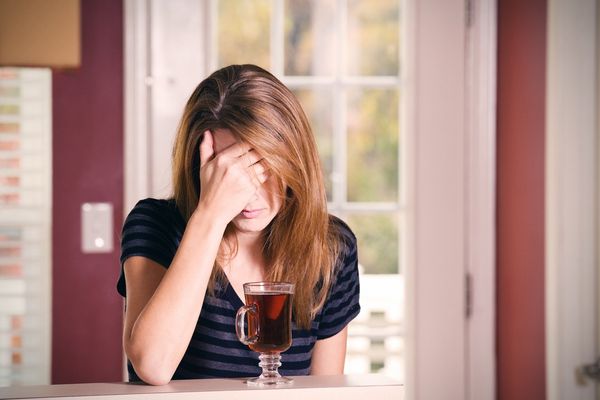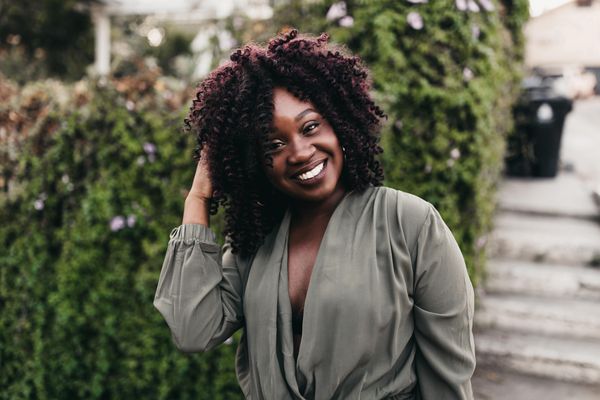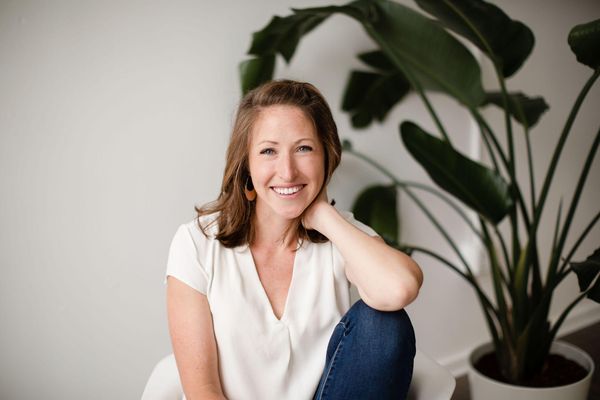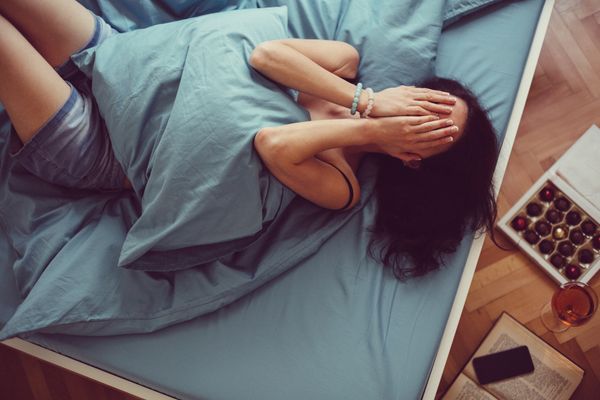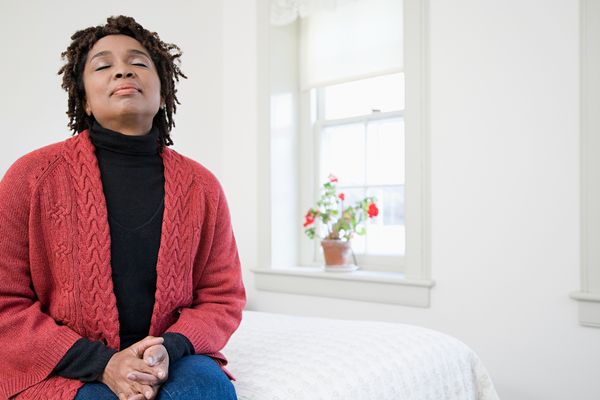A global pandemic, financial stress, and unprecedented social-distancing measures have severely disrupted daily life and caused increased levels of anxiety over the COVID-19 virus.
Vaile Wright, Ph.D., is a clinical psychologist and researcher, as well as a spokesperson for the American Psychological Association. With a special interest in the stress epidemic facing women, Wright has served as an expert source for outlets like NPR, The New York Times, and HealthyWomen.
HealthyWomen turned to Wright for ideas on how women, mothers, and anyone in a caregiver role can manage the mounting anxiety around COVID-19.
HealthyWomen: How can you measure anxiety levels among Americans?
Vaile Wright: Right now, [we can measure] implicitly. We're seeing it in a change of behaviors: People are not flying, people are panic-buying. We see organizations and governments going to telework and shutting down social areas.
HealthyWomen: Can you help us understand the difference between anxiety about a particular topic, like coronavirus, and anxiety as a mental health disorder. How do the two relate?
Wright: Anxiety and stress often get used interchangeably in the way we talk. When we're talking about anxiety related to a specific stressor, we're talking about a pattern of worried thoughts and corresponding behaviors in response to that incident. In general, that's not always a bad thing. Anxiety as a temporary emotion helps motivate us to act. For example, if we're feeling anxious about an upcoming test, ideally that motivates us to study. When the stressor goes away, ideally our anxiety about it should go away too.
Where it switches into becoming more problematic is when these worried thoughts, behaviors, and feelings start to manifest physically in our body to a point where it begins to interfere in our life in some significant way. So when our anxiety makes it so that we can't work or [learn] or we're not able to take care of ourselves or our families, [then it is problematic.] Also when anxiety is interrupting our relationships, or it lasts over a long period of time, [that's concerning]. When someone has an anxiety disorder, they're going to continue feeling anxious to a point where it interferes with their life.
HealthyWomen: When should someone seek professional help for anxiety?
Wright: People can seek out help, particularly if they have the resources to do so, at any time. When it starts to interfere in your life in some significant way, that's really your body telling you that it's probably time to turn to professional help. But we also want to encourage people not to wait that long. If you have the resources to seek assistance, and even if it feels like not that big of a deal, if you can be more preventative and get assistance ahead of things falling apart, you're probably going to do better.
HealthyWomen: Given that we are being encouraged to practice “social distancing,” do you recommend telehealth access to psychological professionals?
Wright: Absolutely. One of the things that we're doing at American Psychological Association right now is preparing resources for providers who haven't been doing telehealth in their practice until this point. One challenge is the rules and laws differ state by state, so in some states and with some insurance providers, telehealth might not be covered. So, while it's a really great option to utilize right now, and you're seeing insurance companies and the government move in that direction in response to the coronavirus, there are still some things that are unknown. If you're thinking about exploring that with your provider, you want to make sure you're asking the right questions.
HealthyWomen: What kinds of COVID-19 anxiety are productive, and what kinds are destructive and distracting?
Wright: Productive things that people can be doing are to mentally prepare for the fact that it's going to get worse before it gets better. How would you handle it if your children's school closed, or if your organization went to telework? Is that even an option for you? Making sure that you are washing your hands, and that you are engaging in social distancing, but that depends a little on your circumstances. Make sure that you are absolutely staying home if you are sick. Those are all things you can do that are productive.
Where it gets unproductive is when you lose that line between being prepared, like having two-week worth of supplies if you do get quarantined, and panic-buying every last toilet paper in the store. That's not productive. And the reason why panic buying is not productive is twofold. It gives you an illusory sense of control, so people do it because they feel like they're in control. Also, you're reducing the resources that other people could need. So, from a community perspective it can be really detrimental.
[Reading the news] is a fine line. You want to stay informed, you need to know what's happening, particularly in your community, but constantly being on the news or constantly checking social media for every new thing, that is not helpful.
HealthyWomen: How does being in a caretaker role exacerbate the anxiety that some women might be feeling?
Wright: Under the best circumstances, being in a caretaker can be stressful. So now you've got this additional uncertain, rapidly developing, potentially dangerous situation happening. And for women in particular, because they [are not just] caretakers but they also do the shopping, and they have to cancel the plans, and they are aware of the finances. I would really encourage caregivers to reach out to the others in their lives and ask for the help that they need.
HealthyWomen: Research suggests that helping others can alleviate anxiety. Given that most Americans are being encouraged to stay home, how can we find ways to help others?
Wright: I think it's about identifying what's important to you. For example, there's been a lot of talk about [supporting] small businesses like restaurants. Can you buy a gift certificate even if you can't go into the restaurant, to give them an influx of cash in this period of time? I think reaching out to older people even on the phone or video chat to make sure that they still feel connected [is important]. As we move towards a possibly bad situation, what can you do ahead of that? Can you donate blood? What is it that you care about? And how can you help meet others needs?
Remind yourself that staying home and self quarantining is an altruistic act. It is ensuring that others are not getting sick. Even if you are somebody at low risk, like the young and healthy, by taking these protective measures, you're ensuring that you're not actively being a carrier and getting others sick.
HealthyWomen: What are concrete ways that women can reduce their own anxiety in relation to this pandemic?
Wright: It's really important to be active in working on your stress right now. When we don't, when we spin ourselves out of control, that's when we get really negative mental health consequences.
HealthyWomen: If the majority of the U.S. is instructed to self-quarantine in order to slow the spread of COVID-19, what should women know about anxiety and stress related to “cabin fever” or being restricted to their homes in sustained close contact with family and roommates?
Wright: It's really important to continue to engage in self-care behaviors. Make sure you're still getting enough sleep, eating as healthy as you can, and trying to get some activity. Self-quarantine can still mean going out into your yard and getting fresh air. Maintaining a routine is important. Make sure that you're saying socially connected, even virtually. [Don't] let that sense of isolation or despondency [take over].
For additional information:
This transcript has been lightly edited for length clarity by HealthyWomen.


